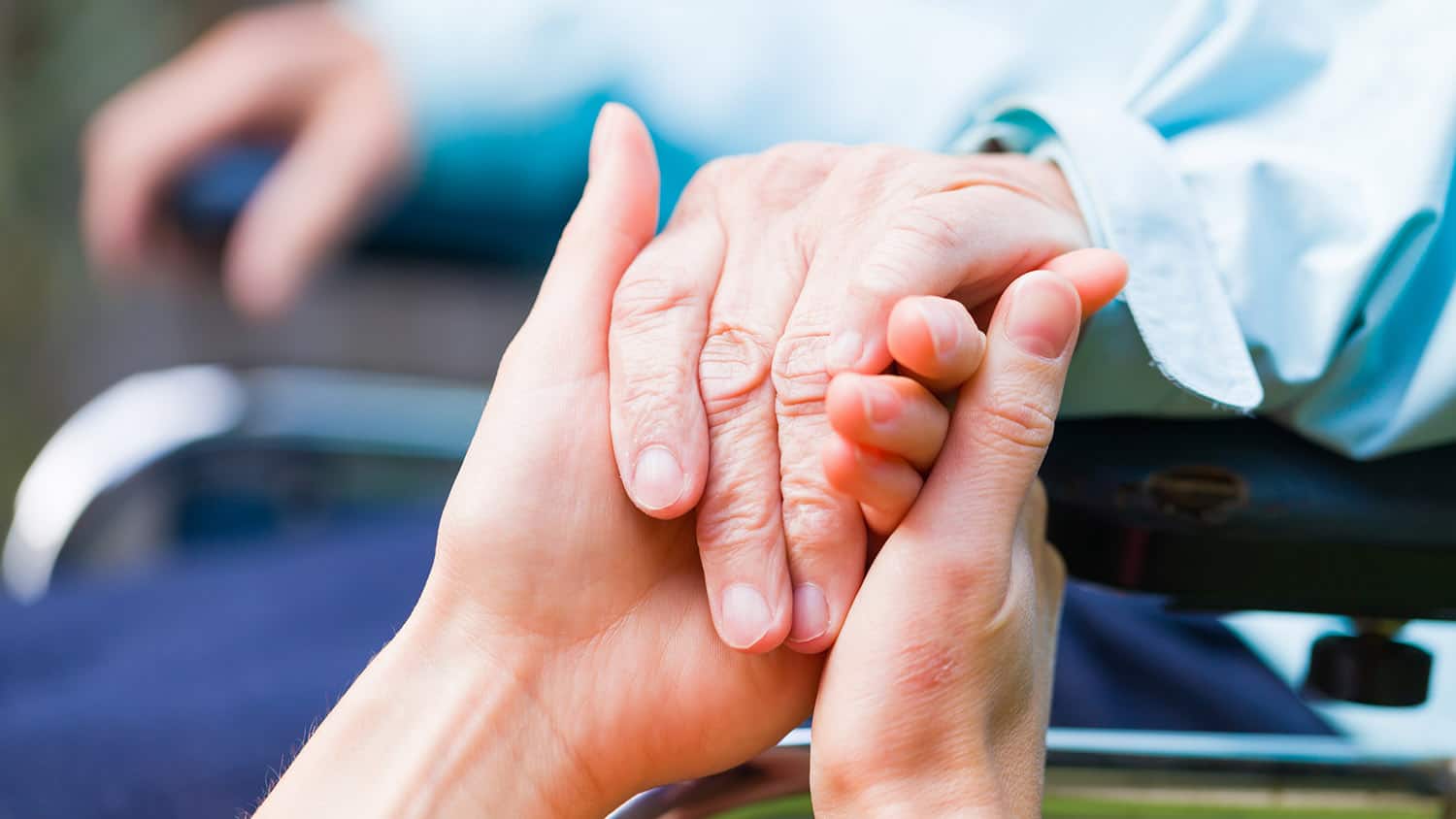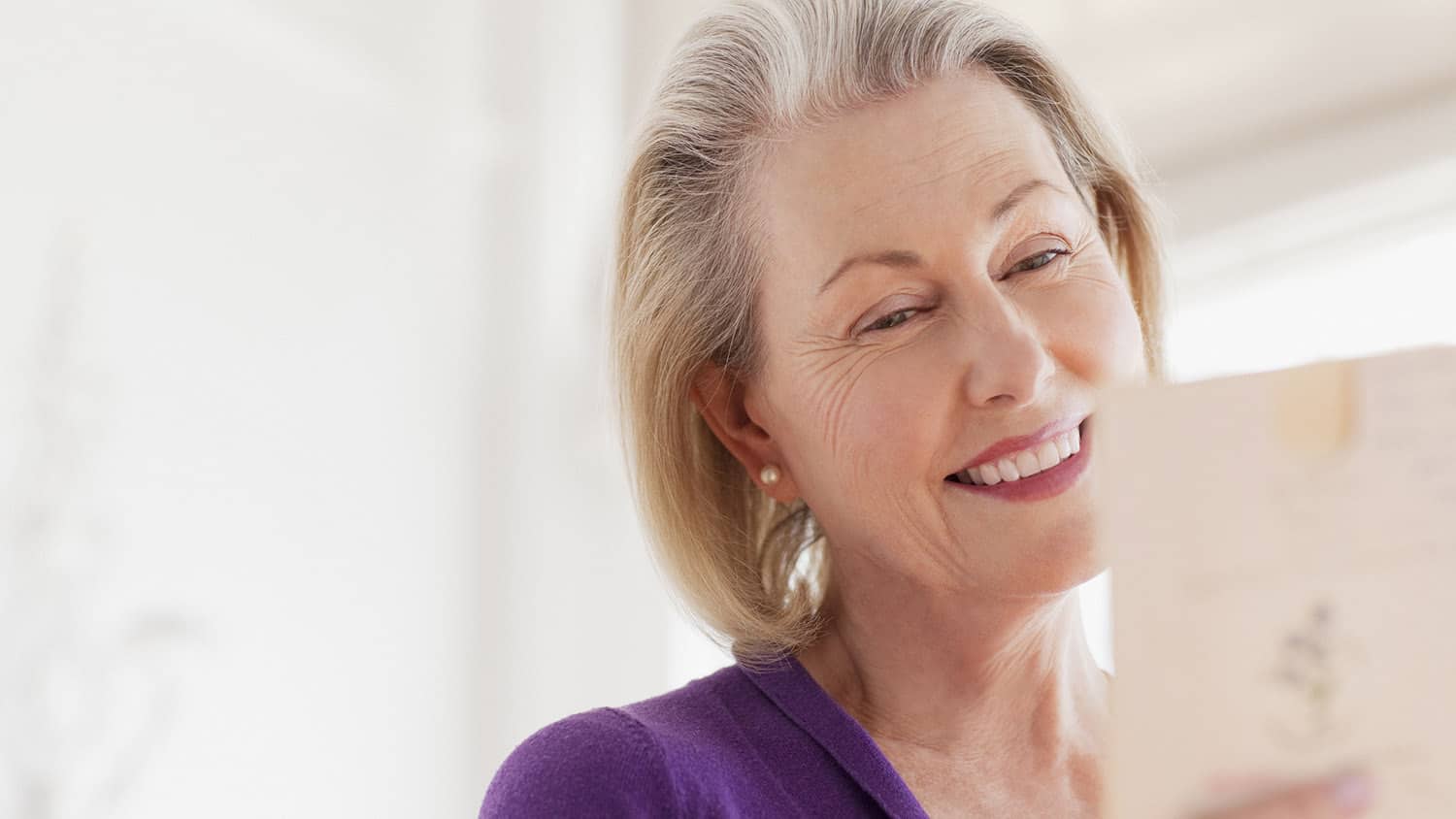
From Crisis to Comfort: 4 Ways to Become a Better Care Partner
Most care partners are thrust into their duties through a crisis situation: a sudden diagnosis; a slip or fall. I was one of those, thrust into a situation after my sister passed.
Often, we become task-obsessed and goal-oriented. In the process, we lose sight of the person for whom we are caring and of ourselves. Being in the moment – consciously caring – is something we need to learn.
Lori La Bey has devoted her life to helping people do just that. She is the founder of Alzheimer’s Speaks, a Minnesota based advocacy group.
She was honored by Maria Shriver as an Architect of Change and named the #1 Influencer Online for Alzheimer’s by Sharecare and Dr. Oz. I had the opportunity to interview her and learn what she finds most helpful in a care partnership.
Concentrate on the Joy
When we consciously care, we can be in the moment. Being in the moment allows us to experience joy. Often, as care partners, we dwell on the tears of what is lost and the fear of what is to come.
In the process we are missing joy, which happens in the present state. You must consciously decide to experience the joy.
Focus on Three Things – Safety, Happiness and Freedom from Pain
When I visited mom at her senior community, I had an agenda: We have to do this. We have to do that… Sometimes Mom wasn’t buying it or up to it. Then what? Then you go with the moment. I realized that maybe all those things I thought were important, were actually not.
Lori says that when we focus on the three elements of our loved one’s well-being, it not only helps us focus, but it actually reduces the things we need to do and allows us to do the things we want to do, like spending quality time with mom or dad.
Simply put, assess the moment: Is mom safe? Is she happy? Is she free from pain? If so, you may find you have nothing to do at that moment. Enjoy the silence!
Become a Care Partner
Notice that we have not used the word caregiver in this article – well, until now! That is deliberate. You need to consider yourself a care companion or a care partner. When you label someone as a caregiver, you set expectations that they are giving everything away.
When you are a care partner, it becomes about a relationship, where both parties are giving and receiving. Each supports the other. That balance allows you to stop, slow down and listen. Then you can have meaningful conversation with a loved one where you include the loved one in the decision-making.
For example, you may talk to mom or dad about driving. Lots of families try to make unilateral decisions around that. Instead, ask your loved one, “When do you want to stop driving? When do you think it will not be safe?” Write it down or videotape it.
Create the Village
Most of the issues surrounding older adults, and particularly those with dementia, boil down to societal issues, not medical ones. The interaction with the health system is just one part of the journey when growing old.
Remember the questions – are they safe, happy and pain free? That could translate to:
- Does the person have transportation to medical appointments and social events?
- Are they eating well? Is there food insecurity?
- Is their home safe?
Medical professionals like to call these the social determinants of care. Social means society. Educate neighbors and friends about the issues of growing older. Involve them in care. Identify people at risk in the community.
Local contractors and service providers might look in on them occasionally. Even the post office worker can monitor if the mail is being picked up, an indicator of someone’s well-being and ability to get around.
As Leeza Gibbons once said, “Concentrate on what’s left, not what’s gone.”
Let’s Have a Conversation:
Have you moved from a crisis caregiver to a conscious care partner? How did you do it? Are you spearheading initiatives in your community? Tell us about them in the comments below.
Tags Getting Older







Wonderful article and right on. My Dad had a lot of pain and medical issues towards the end of his life, but he still loved music, so we had a musician come through the hospice program. As he was lying in his hospital bed in his apartment, unable to speak well or move, he could still smile and experience joy. I will never forget that. I’m much better now at looking after my mom than I was with him. At 95 with dementia, Mom is still able to laugh and enjoy the moment. I’ve learned a lot from her and hope to be like her, if I make it to her grand age.
You may want to check out my new initiative and treat mom! http://www.sagestream.live
Beautifully stated and hearfelt. As an advocate for mindful caregiving this resonates for me in my own life. Precious visits with my mom required cross country travel. There was always a gap between how I thought we would spend the time and what we actually did. And I let Mom take the lead, whether she could state her needs directly or told me by her actions and responses. I felt a responsibility to be attuned to her comfort as well as my own.
Thank you
Well said, Claire!